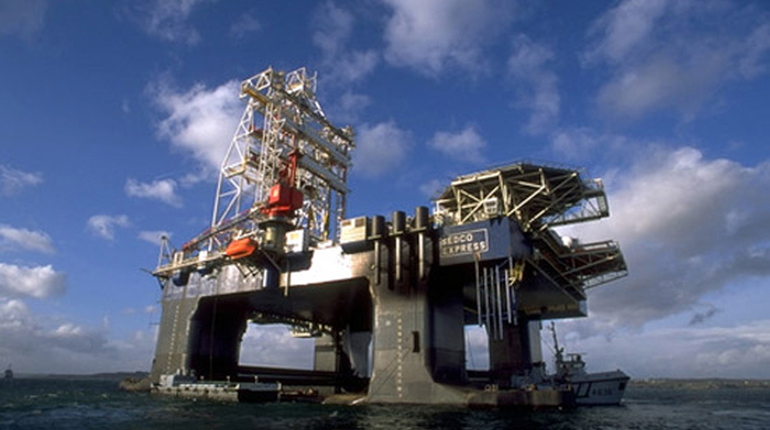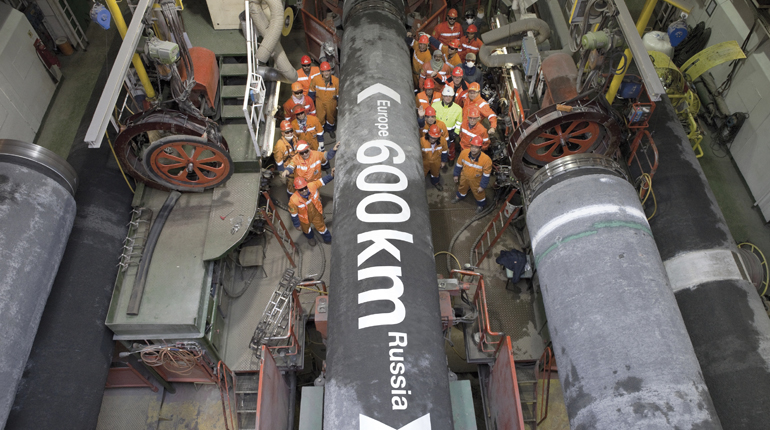Israel to open up offshore for exploration
Israel’s energy ministry has been given the go ahead to open up its offshore territory to explorers once its new gas regulatory framework comes into effect.
 Noble Energy and Transocean rig in the Tamar field, between Cyprus and Israel. (Transocean)
Noble Energy and Transocean rig in the Tamar field, between Cyprus and Israel. (Transocean)
Israel plans to open up more of its offshore territory to explorers when its new gas regulatory framework comes into effect at the start of next year, according to Yuval Steinitz, the minister of national infrastructure, energy and water resources.
Steinitz told the Universal Oil and Gas conference in Tel Aviv on Tuesday by announcing that he had already instructed his ministry to open up the country’s exclusive economic zone for new exploration.
He said only 25% of the country’s waters had been explored for hydrocarbons, and research commissioned by the ministry from international advisors indicated that sizable deposits of both oil and gas could still be hidden there.
Steinitz said he had given the approval for the ministry to "open up the waters" several months after the framework was implemented – which by his timetable would be the middle of the year. He said the framework, which is due to be debated by Israel’s parliamentary economic committee next week, would be approved by mid-December.
Israel has 36 valid licences, held largely by small companies – many of which are not actively engaged in exploration.
Steinitz also said Israel was discussing the joint development of gas fields with Cyprus and Egypt. He said the options under discussion were to use Egypt’s liquefaction plants on the Mediterranean coast to export LNG, or to build a pipeline to Turkey to export gas to Europe.
However, Miki Korner, the former head of Israel’s Natural Gas Authority, told Interfax it was Egyptian industrial companies – along with BG Group and Union Fenosa Gas – to whom Israel was talking and not the Egyptian government.
Steinitz has been assiduously courting foreign oil and gas companies to invest in Israel over the past two months, travelling to the United States with a ‘roadshow’ to prompt new interest in the country’s energy sector.
But Amit Mor, chief executive of energy consultancy Eco Energy, told Interfax now was not the time to be marketing new licences to foreign companies because of the dire state of the oil market, which is causing companies around the world to tighten spending in the face of low prices.
He also said the government should use a competitive tender to open Israel’s waters to new exploration. Israel has traditionally awarded licences to companies that applied to the ministry rather than by tender because few players wanted to enter its energy market.
Preparing for implementation
The likelihood of the gas framework being passed soon caused Delek Energy and Noble Group to sign a deal on Sunday, which saw Noble sell its 47% stake in the Karish and Tanin fields to Delek for $67 million.
It will give the Israeli company and its subsidiary Avner Oil full ownership of the two licences, plus the ability to exclusively sell the rights to the fields to prospective buyers – such as Italian companies Edison and Eni – without having to share any profits it makes above the value of the deal with Noble.
A source at Edison, who wished to remain anonymous, said although discussions around buying those fields had been continuing for some time, nothing complete has come from them. Edison is the operator of the Neta and Royee licences, which are close to the maritime border with Israel, and owns a 20% stake alongside Ratio Oil Exploration and Israel Opportunity Energy Resources.
However, the deal is conditional on the Israeli government’s new framework being approved within 75 days of the signing.
The framework forces Delek and Noble to sell their stakes in the Alon A and Alon C licences – which cover the Tanin and Karish fields – within 14 months of the framework being implemented, to promote competition within the Israeli upstream gas sector. The two fields contain about 60-80 billion cubic metres of gas.
The companies said in a release to the Israel stock exchange on Sunday that the sale was to "enable the efficient process of selling the Karish and Tanin fields".
Korner said the deal would simplify the ownership structure so the fields could be sold faster, to take advantage of better conditions available to the seller resulting from a quick sale.
"The conditions [to encourage the owner to sell] change with time, so they get better conditions if they sell it faster," Korner said.
Those conditions include allowing Delek to take a greater percentage of royalties if the field is sold within eight months, or face the prospect of the fields being taken and auctioned off in a firesale by the government if they are not sold within 14 months.
Chinese-controlled Hutchison Whampoa could also be interested in buying the Tanin and Karish fields, according to the Calcalist business daily.
Liked this article?
Sign up for exclusive, accurate and up-to-date natural gas news, analysis and intelligence, with global coverage of every phase of the gas chain.
By logging in or signing up for a free trial, you are agreeing to our terms and conditions, privacy policy and cookie policy.






